
The NIHR Research Design Service South West (RDS SW) is holding a Residential Research Retreat 13-15th September 2022 inclusive, at Dillington House in Somerset.

It offers a fantastic opportunity for research teams to develop high quality research proposals in health and social care suitable for submission to national peer-reviewed funding streams. At the retreat there is advice on tap from a range of methodological advisers (statisticians, health economists, patient and public involvement experts, qualitative researchers etc.) and dedicated time to work on your proposal as a team.
FHSS is offering to cover the costs of 2-3 teams. Teams of up to 3 or 4 can attend the retreat, ideally with at least one member employed in an NHS, social care or public health organisation in the Southwest. Multi-disciplinary teams with varied research experience will be considered favourably, and a mix of clinical and academic skills and experience is preferable. Teams may include service users or carers.
Places on the retreat are competitive and there is an application process. Fees may be waived for applicants from a public health or social care background, but applicants are advised to seek advice about this before submitting an application.
This is an excellent opportunity for academics who already have a proposal developed in health and social care research that is aligned with fusion and the strategic investment areas.
The deadline for applications is fast approaching: 20th April 2022.
What to do next?
You’ll need to book a slot with NIHR RDS SW Bournemouth site lead, Dr Sarah Thomas who is holding drop-in information and advice sessions to discuss potential applications. After your slot you will be given an opportunity to apply for FHSS funding.
The sessions are from 1-3pm on Monday 4th April or 11am-1pm on Wednesday 6th April. Please e-mail: wardl@bournemouth.ac.uk to book your 15-minute slot.
Further details about the Residential Research Retreat, including the eligibility criteria and application process can be found here: Residential Research Retreat
Your local branch of the NIHR RDS (Research Design Service) is based within the BU Clinical Research Unit (BUCRU)
The NIHR RDS can advise on all aspects of developing a grant application and can review application drafts as well as put them to a mock funding panel (run by NIHR RDS South West) known as the Project Review Committee, which is a fantastic opportunity for researchers to obtain a critical review of a proposed grant application before this is sent to a funding body.
Contact us as early as possible to benefit fully from the advice.
Feel free to call Louise Ward on 01202 961939 or send an email bucru@bournemouth.ac.uk to make an appointment.
 The organisation of this two-day event was jointly with the University of Huddersfield, Manmohan Memorial Institute of Health Sciences (MMIHS) in Kathmandu and the charity Green Tara Nepal. The event was part of the BU-led Health Research Network for Migrant Workers in Asia whose formation was supported two years ago by GCRF (Global Challenges Research Fund). The workshop plan was designed by BU’s Dr. Pramod Regmi and Dr. Nirmal Aryal. Our recently started FHSS PhD student Yagya Adhikari and Prof. Edwin van Teijlingen also contributed to the workshop in Kathmandu. Yagya spoke about his PhD which focuses on ‘Parental migration and its impact on the health and well-being of left-behind adolescents in Nepal’.
The organisation of this two-day event was jointly with the University of Huddersfield, Manmohan Memorial Institute of Health Sciences (MMIHS) in Kathmandu and the charity Green Tara Nepal. The event was part of the BU-led Health Research Network for Migrant Workers in Asia whose formation was supported two years ago by GCRF (Global Challenges Research Fund). The workshop plan was designed by BU’s Dr. Pramod Regmi and Dr. Nirmal Aryal. Our recently started FHSS PhD student Yagya Adhikari and Prof. Edwin van Teijlingen also contributed to the workshop in Kathmandu. Yagya spoke about his PhD which focuses on ‘Parental migration and its impact on the health and well-being of left-behind adolescents in Nepal’.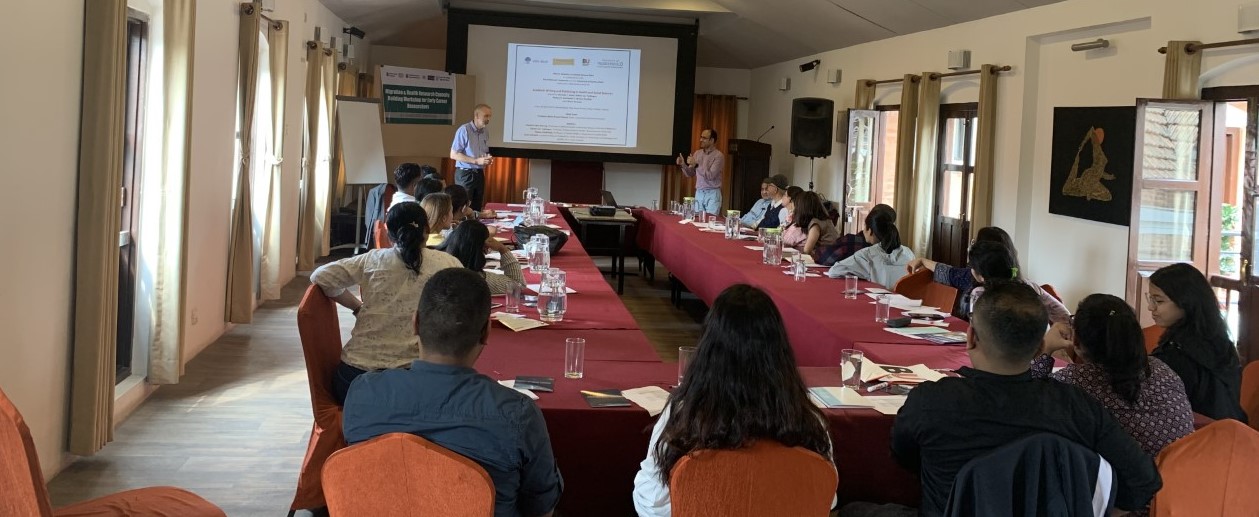 Further contributions to the workshop were from former BU PhD student Dr. Pratik Adhikary (now working for PHASE Nepal) and two of our academic colleagues from the University of Huddersfield: Dr. Sharada Prasad Wasti and Prof. Padam Simkhada. Prof. Simkhada is also Visiting Professor in FHSS.
Further contributions to the workshop were from former BU PhD student Dr. Pratik Adhikary (now working for PHASE Nepal) and two of our academic colleagues from the University of Huddersfield: Dr. Sharada Prasad Wasti and Prof. Padam Simkhada. Prof. Simkhada is also Visiting Professor in FHSS.
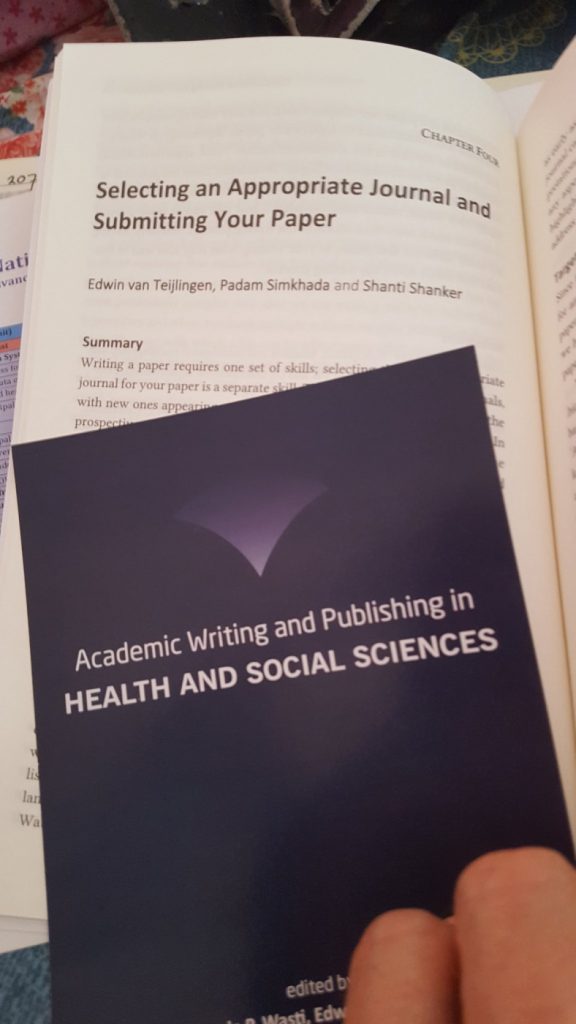
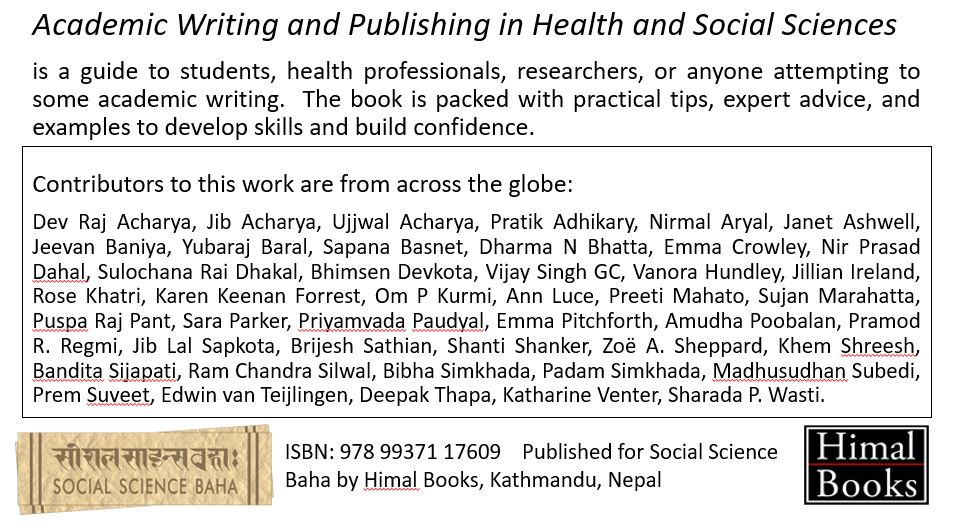
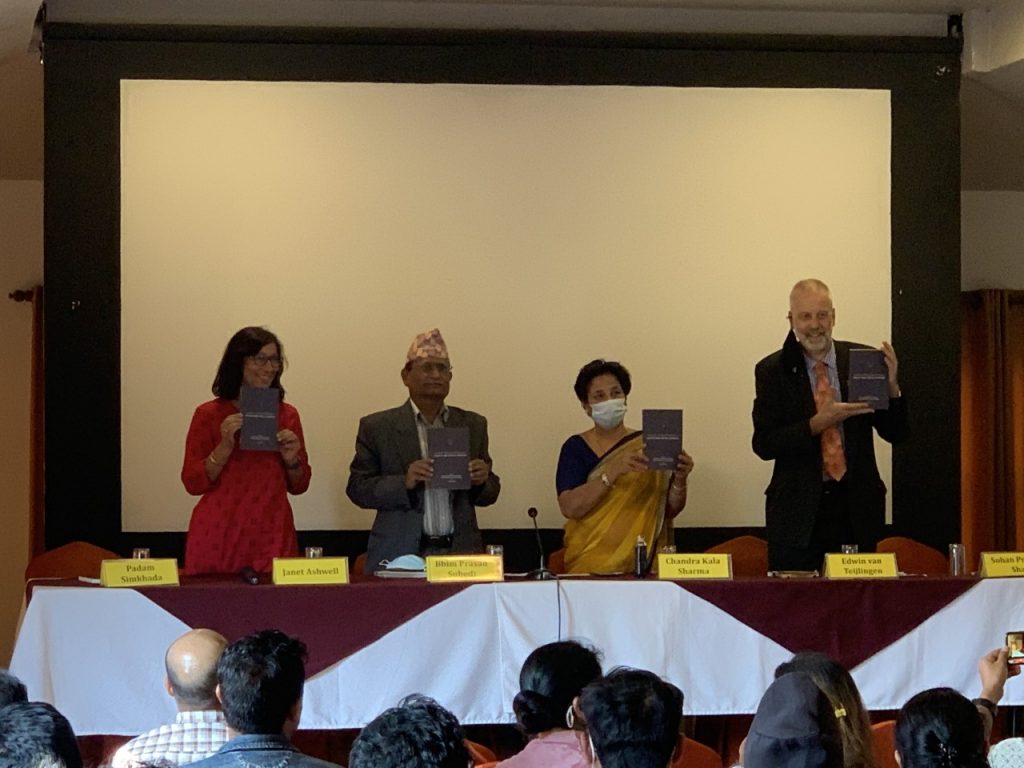
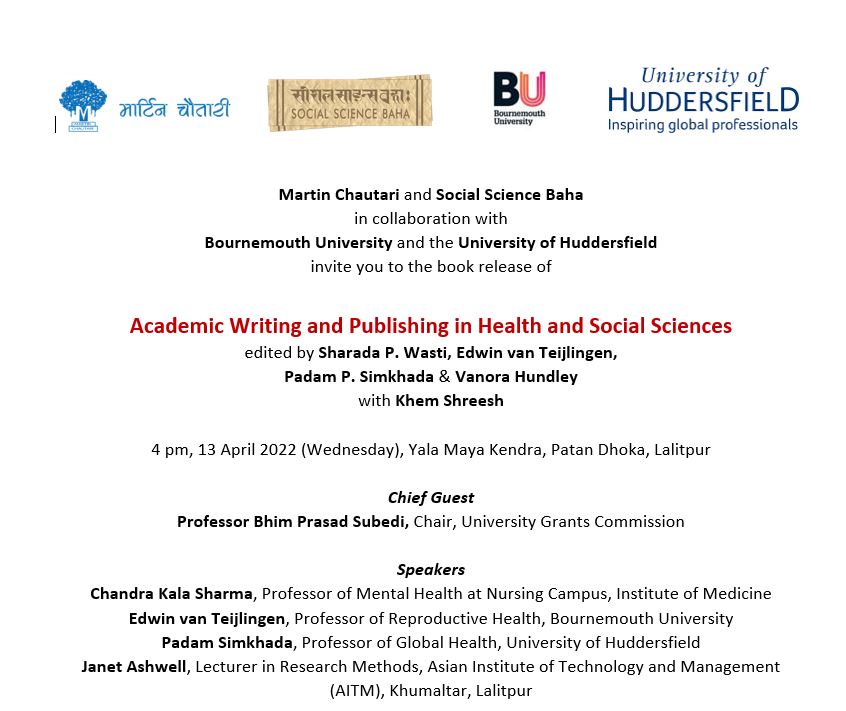
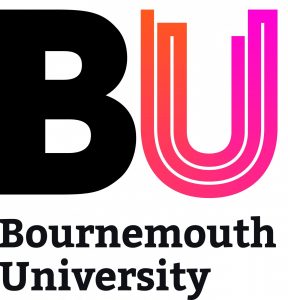

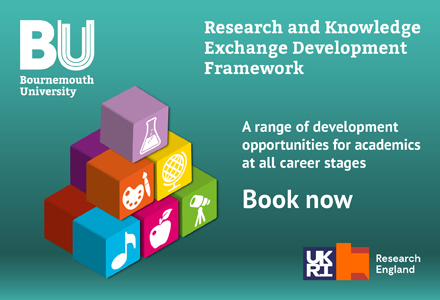
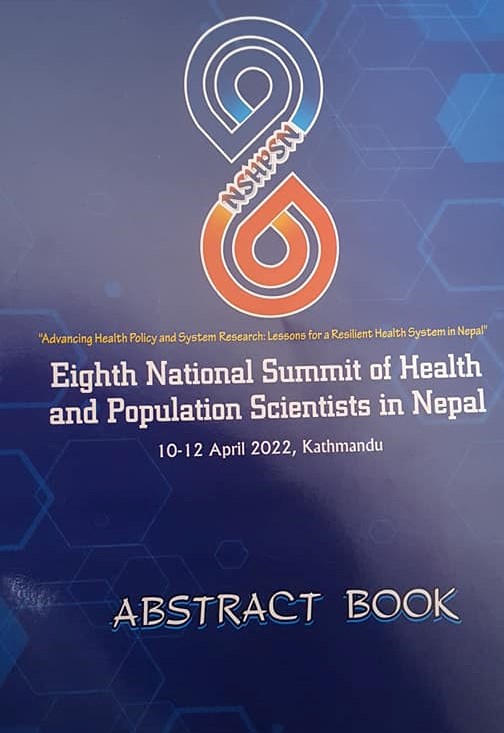
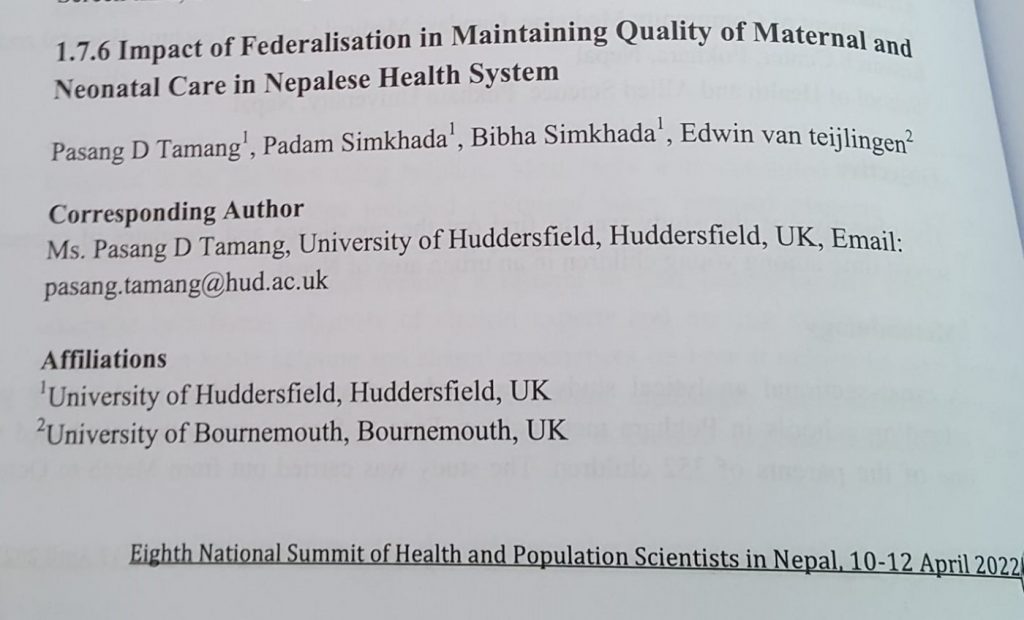
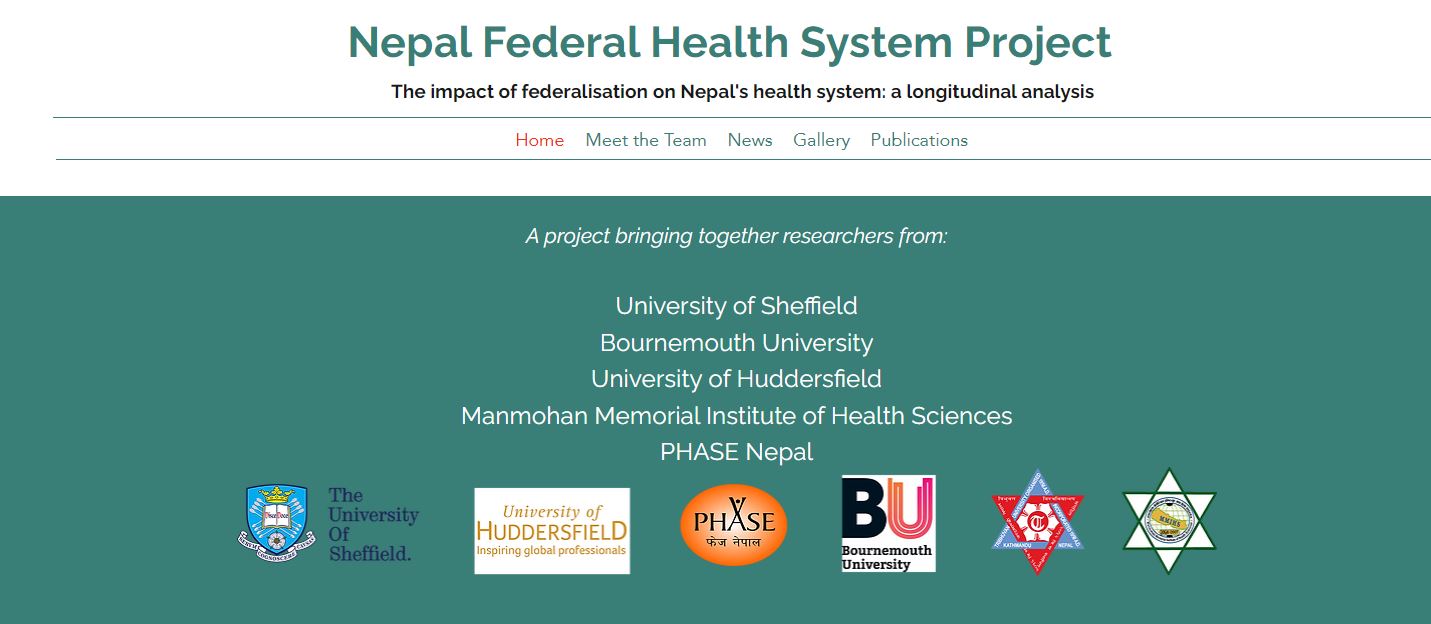

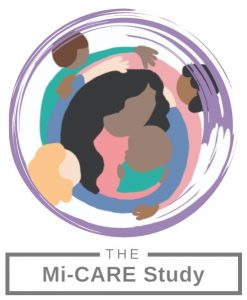



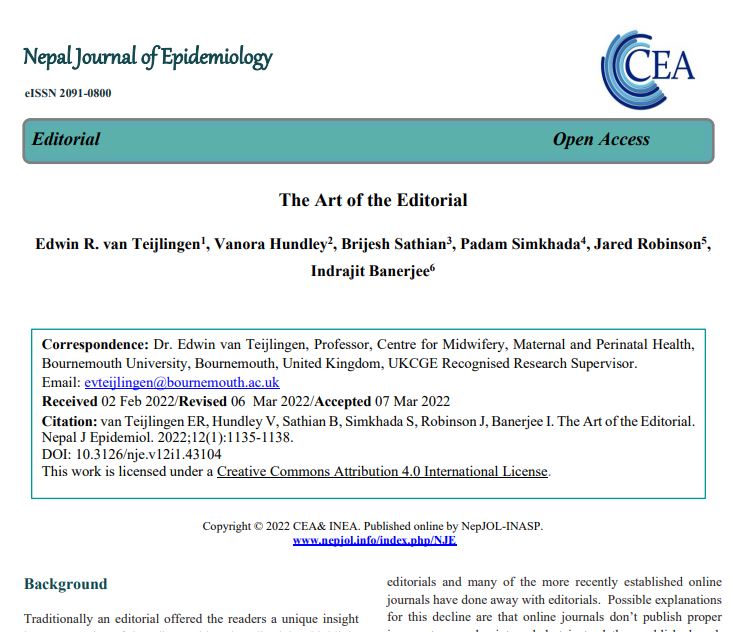

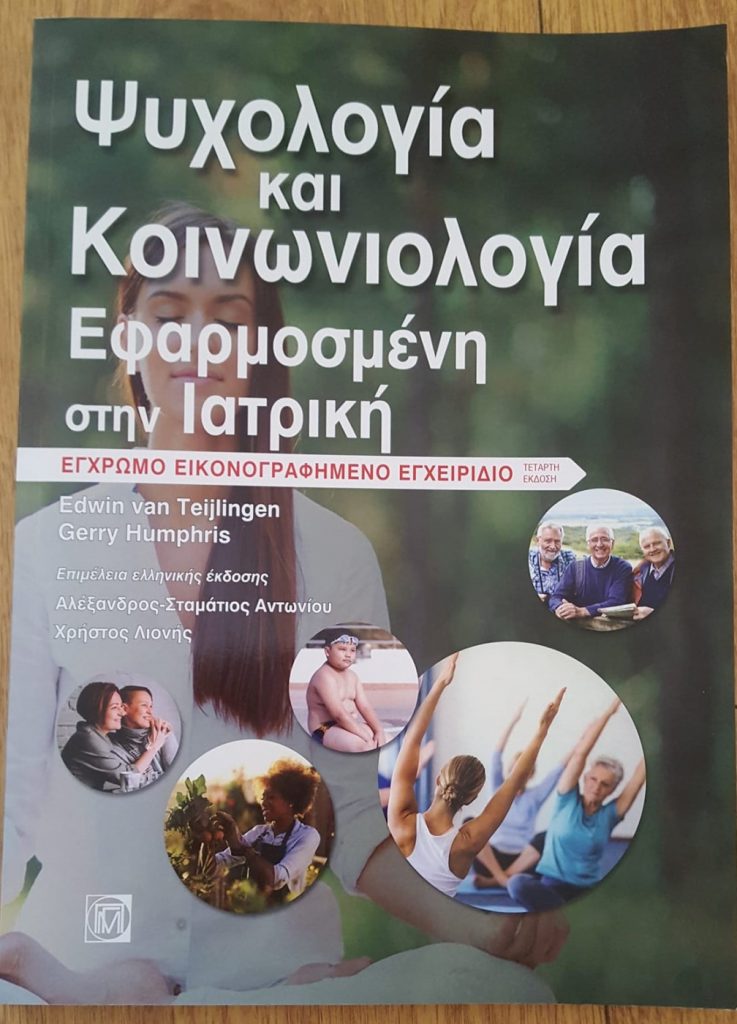
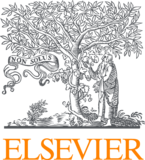
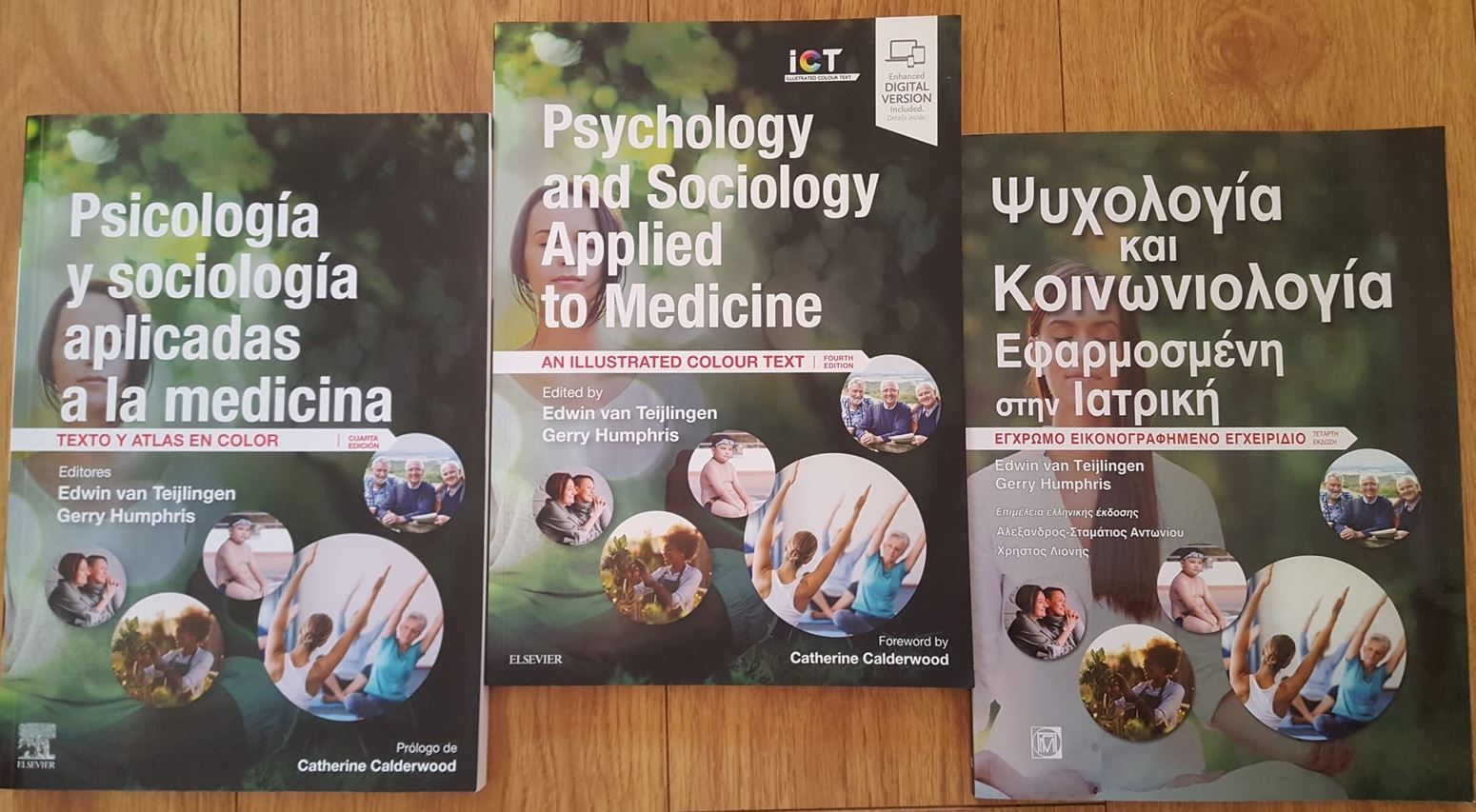
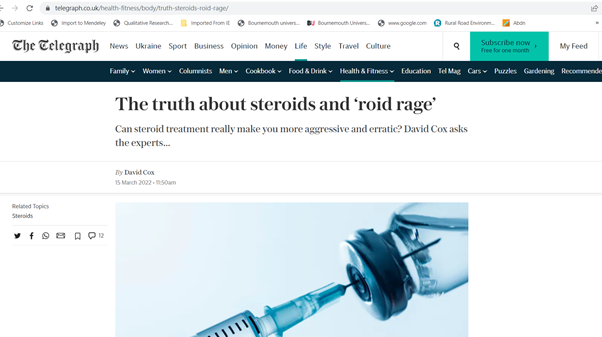



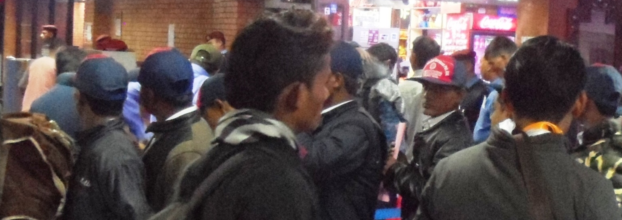












 Free event on Solutions to Inequalities in Dementia Diagnosis and Care
Free event on Solutions to Inequalities in Dementia Diagnosis and Care BU attendance at third annual GCPHR meeting in June
BU attendance at third annual GCPHR meeting in June Interactive Tangible and Intangible Heritage Applications – BU student work featured in new book chapter
Interactive Tangible and Intangible Heritage Applications – BU student work featured in new book chapter Second NIHR MIHERC meeting in Bournemouth this week
Second NIHR MIHERC meeting in Bournemouth this week MSCA Postdoctoral Fellowships 2025 Call
MSCA Postdoctoral Fellowships 2025 Call ERC Advanced Grant 2025 Webinar
ERC Advanced Grant 2025 Webinar Horizon Europe Work Programme 2025 Published
Horizon Europe Work Programme 2025 Published Horizon Europe 2025 Work Programme pre-Published
Horizon Europe 2025 Work Programme pre-Published Update on UKRO services
Update on UKRO services European research project exploring use of ‘virtual twins’ to better manage metabolic associated fatty liver disease
European research project exploring use of ‘virtual twins’ to better manage metabolic associated fatty liver disease